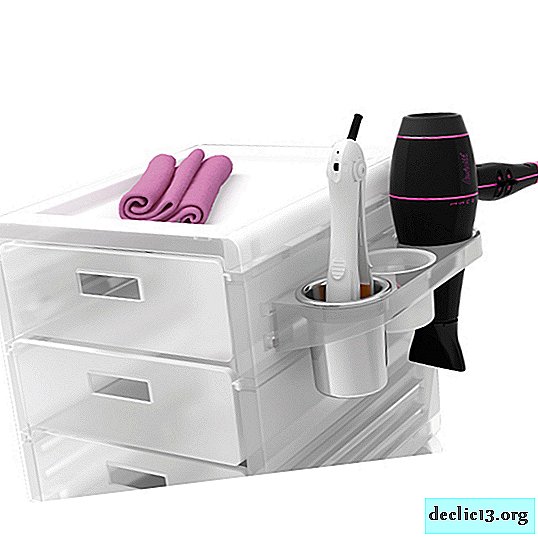Symptoms and treatment of intestinal flu in adults and children

Intestinal flu (gastroenteritis) is a serious infectious disease in which rotavirus infects the intestinal mucosa. The virus is extremely contagious and easily transmitted. We will discuss the symptoms, signs, treatment and prevention of intestinal flu in adults and children with folk and medical means.
You can get infected through vomit, stool, saliva, personal hygiene items and sick people. Intestinal flu is also transmitted through the air. The disease can provoke small outbreaks of an unstable epidemic.
The human body, which encounters intestinal flu, gradually acquires immunity and reduces the impact of the pathogenic virus.
In our country, gastroenteritis, as doctors call it, is a common seasonal disease. It manifests itself with the onset of cold weather and brings the greatest inconvenience to children.
Signs of intestinal flu
- A sharp start. After a short incubation period of up to 3 days, the patient has a fever and fever. Influenza is accompanied by vomiting and diarrhea. Often, the discharge changes color and contains an admixture of blood. The duration of the acute period of gastroenteritis is usually a week.
- Spasmodic abdominal pain. Pain sensations are characterized by different intensities.
- Sneezing and runny nose. Most often, the development of gastroenteritis is preceded by an outbreak of traditional flu. Not surprisingly, the disease is accompanied by signs characteristic of a classic viral infection.
- Weakness and lack of appetite. As intestinal flu develops, the body is depleted. The face becomes aggravated, the pressure decreases, symptoms of anemia appear - paleness and dizziness.
Often a fever hides the signs of dehydration - dry skin and pallor. As a result, people with gastroenteritis enter the hospital in serious condition. At this point, they lose the ability to navigate in space and suffer from convulsive seizures.
At the first symptoms of the disease, consult a doctor.The presence of vomit and feces in the blood is a signal to immediately call an ambulance. This may indicate a bacterial intestinal infection, the fight against which requires a fundamentally different therapy.
Any person can experience gastroenteritis, regardless of age. Nevertheless, young children are most susceptible to the disease, because they constantly pull various objects into their mouths, and their gastric juice has low acidity. Infection often worries people with weakened immune systems. At the same time, antiviral drugs are ineffective against intestinal flu infection.
Treatment of intestinal flu in adults and children
Gastroenteritis is the medical name for stomach flu. Contrary to the name, the disease has nothing to do with ordinary flu. This is a completely different kind of infection that affects the digestive system.
Many types of viruses cause such inflammation, including norovirus, rotavirus, astrovirus and others. At the same time, pathogens can bring severe discomfort to the patient. I used the word “may” for a reason, because often the symptoms of the disease do not manifest themselves, while the person remains a spread of the infection.
Medicines for intestinal flu
They treat gastroenteritis by generally accepted methods, aimed at reducing intoxication and normalizing water-salt metabolism. Therapeutic measures, which use medicines for intestinal flu, reduce toxicity, stop dehydration, restore the basic systems of the body and block the development of concomitant bacterial infection.
- Recovery of water-salt balance. Gastroenteritis leads to severe depletion and dehydration of the body. It is recommended to use pharmaceutical preparations saturated with mineral salts, including Rehydron.
- Enzymes Influenza virus disrupts the production of digestive enzymes. During the treatment of gastroenteritis, Mezim or Festal is prescribed.
- Enterosorbents. Remove toxins from the body. The list of such drugs is presented by activated carbon, Smecta and Enterosgel.
- Normalization of peristalsis and the elimination of diarrhea. Enterol or Immodium.
- Probiotics They accelerate the process of removing pathogenic microflora from the intestine. Saturated with beneficial bacteria involved in digestion.
- Temperature reduction. The temperature is not recommended to be reduced to 38 degrees. This temperature helps to activate the protective functions of the body. At higher temperatures, it is recommended to use any antipyretic drugs. For children, give only Nurofen or Panadol.
Antibiotics against gastroenteritis are prescribed only by the attending physician. Such medications do not always help in the destruction of viruses and have a detrimental effect on beneficial microorganisms.
Video from the program Live cool about rotaviruses
Folk remedies for intestinal flu
Gastroenteritis is also on the list of common diseases of the digestive system. Infection usually occurs through infected sour-milk products and dirty water. Let's look at effective folk remedies against this disease.
- Homemade Mineral Blend. A similar mineral composition with Regidron can be made at home. To do this, dissolve two tablespoons of sugar and a spoonful of salt in a liter of water.
- Hypericum broth. To prepare a spoonful of chopped St. John's wort, steam with a glass of boiling water, hold in the bath for half an hour, filter and pour another cup of hot water. Take a decoction of 0.33 cups before a meal. A refrigerator is suitable for storage. Shelf life is 48 hours.
- Caterpillar infusion. Helps with diarrhea. Pour a spoonful of dried milk with a glass of water brought to a boil, close tightly, wait two hours and filter. Take half a glass daily before meals until diarrhea disappears.
- Decoction of root cyanosis. Spoon chopped roots of cyanosis with boiling water in a volume of 0.25 liters and boil for half an hour at minimum heat. Take a spoon after a meal.
The last two recipes suggest a strict diet and rejection of meat products. Instead, low-fat cheese, vegetables and fruits are suitable.
I want to note that traditional medicine has not yet been able to create recipes against gastroenteritis, guaranteeing the complete disappearance of the disease. Therefore, if symptoms occur, consult a doctor who will choose the right treatment.
If you act on your own, the probability of choosing the wrong treatment strategy is extremely high, which can lead to hospitalization. In addition, cases have been reported when self-medication of gastroenteritis caused death. Do not neglect the help of doctors.
Intestinal flu prevention
It is known that preventing a problem is much easier than eliminating it. Therefore, I will consider the prevention of intestinal flu.
In the case of gastroenteritis, drug prevention is absolutely powerless. It makes sense to take medications only after the onset of the disease.
- Infection is transmitted by food. Wash hands regularly after eating, before eating and after using the toilet.
- Do not use the dishes of a person with intestinal flu.
- Ideally, isolate the patient for a while. To do this, it is enough to give him a little separate space in the apartment. This technique is considered the best way to prevent it.
Diet for gastroenteritis
In the list of unpredictable and insidious diseases, gastroenteritis takes pride of place. Since the goal of the intestinal flu virus is the digestive system, diet is paramount for a speedy recovery.
- Fluid intake. Diarrhea with vomiting and fever removes fluid from the body, which salted water will restore.
- Soft and gentle nutrition. With gastroenteritis, the production of enzymes important for digestive processes is reduced. At first, drugs like Mezim will make up for the deficiency of enzymes.
- The diet includes the use of probiotics. Such drugs are saturated with bacteria that are beneficial to the human microflora. Probiotics are found in sufficient quantities in skim milk products.
- The menu includes omelettes, watery cereals and steamed vegetables. Such food is saturated with the most important trace elements for the body.
- It is not recommended to use products with a laxative effect. Figs, apricots, dried apricots and plums.
- Refuse foods and drinks that speed up fluid removal. This includes tea, coffee, carrots and beets. It is undesirable to eat food that can cause fermentation - cow's milk, meat, legumes, sweet soda, marinades, nuts and pickles.
According to experts, it is extremely important to follow a diet immediately after the appearance of gastroenteritis. In the future, the diet can be gradually expanded by adding dairy products, broths and meat dishes. Sweets and fresh bread are allowed to be consumed no earlier than 20 days after the disappearance of the disease.

















